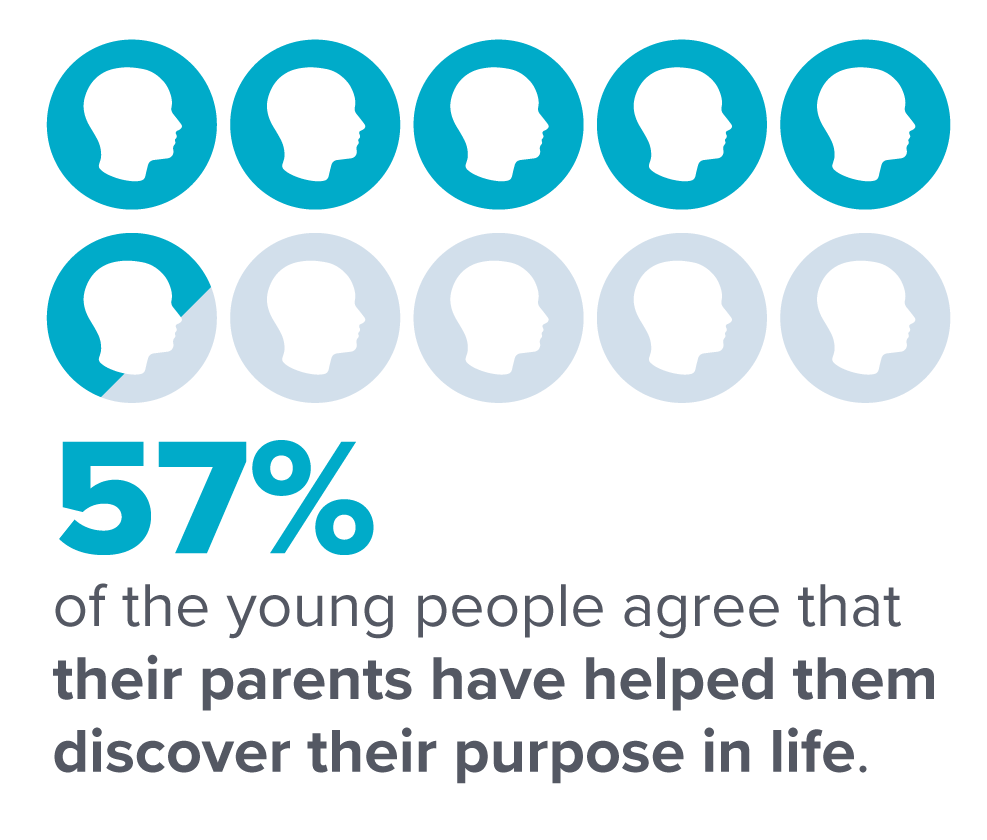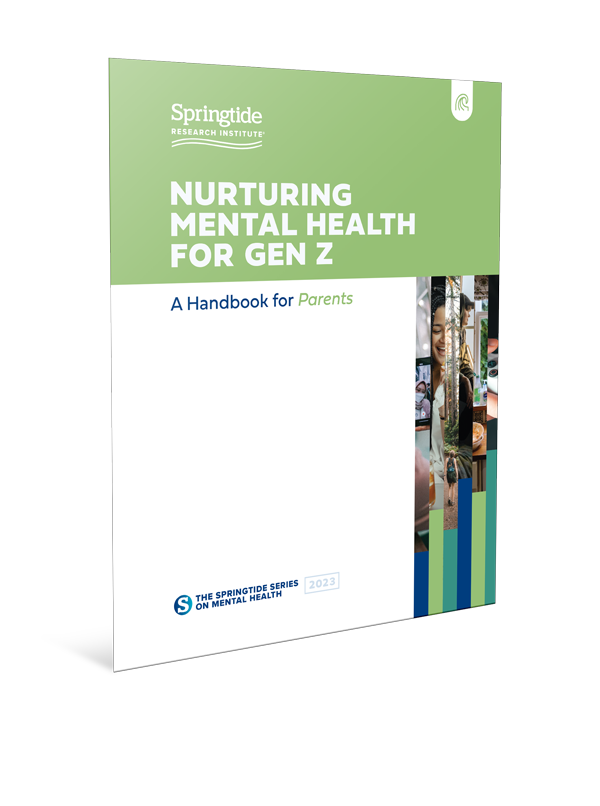
Parents Play Key Role in Youth Mental Health
We are just days away from the release of the final offering in our Springtide Series on Mental Health: Nurturing Mental Health for Gen Z: A Handbook for Parents. Whether you’re the parent of a young person still living at home or are now living as an empty nester, this handbook offers insights on what home and family life means for young people’s mental health and gives workbook-style prompts to help you understand how to best support your young person.
The home environment is one of the most influential spaces when it comes to young people’s mental health. Mental-health friendly home environments are safe spaces for young people, which can help bolster mental wellness. Meaningful relationships within those spaces, and support and acceptance by family, is paramount for mental wellness as young people work to develop their own identities — even if the emotions they express and behaviors they display sometimes suggest otherwise. The impact of the COVID-19 pandemic fundamentally changed interpersonal relationships for young people — healthy relationships with parents are even more important for preventing and reducing symptoms of anxiety and depression among Gen Z.
One of the ways parents can support young people’s mental health at home is to help their young person when it comes to determining purpose and success.


Social scientists have shown that discovering purpose as a teen or young adult is associated with improved mental and physical health, altruism, and self-esteem, which has been tied to success in a number of other developmental areas.
Young people’s mental health is also impacted positively when parents offer guidance toward academic and/or professional success. Sixty-four percent of young people surveyed agree that their parents have clear expectations for their success. Offering those clear guidelines helps bolster feelings of purpose and belonging in young people, which impacts mental health. Once expectations are set, supporting young people as they embark on these paths is equally crucial for mental wellness. Sixty-eight percent of young people agree that their parents support them with school demands, and 64% agree that their parents are supportive regarding pressures or challenges at work.
Yet, young people tell us that while expectations for success can be positive, they can also feel burdensome.
I think often expectations can serve as a helpful guideline. When my parents talk about expectations they have for me, and they align with the expectations I have for myself, they become really motivating— like goalposts that I can hit. And when I do hit them, it’s a positive experience for not only me but also my family. It makes me happy to know that I’m fulfilling their expectations. But when [their expectations] don’t especially align with what I want to do, it alienates me from what I feel is my purpose or what I want to do. It’s kind of like a double-edged sword because when they do align with my expectations, I find them to be really positive. But then when they’re not exactly what I would see for myself, it’s really detrimental. So, you can either choose to fulfill the expectations you have for yourself and be happy with what you’re doing and what you want to achieve, or you can make your family happy and get happiness from achieving those expectations.
—Ansel, 14
As a parent, you may not know if your young person has the perception of expectations that Ansel describes. You can help foster mental wellness by keeping lines of communication about expectations open, which offers a way to ensure that your young person isn’t burdened by expectations they can’t or don’t want to meet.
Get Nurturing Mental Health for Gen Z: A Handbook for Parents and take advantage of all this great resource has to offer!
References
Pollack, W. S. (2004). Parent-child connections: The essential component for positive youth development and mental health, safe communities, and academic achievement. New Directions for Youth Development, 103, 17–30.
Blattner, M. C. C., Liang, B., Lund, T., Spencer, R. (2013). Searching for a sense of purpose: The role of parents and effects on self-esteem among female adolescents. Journal of Adolescence, 36(5), 839–848.




